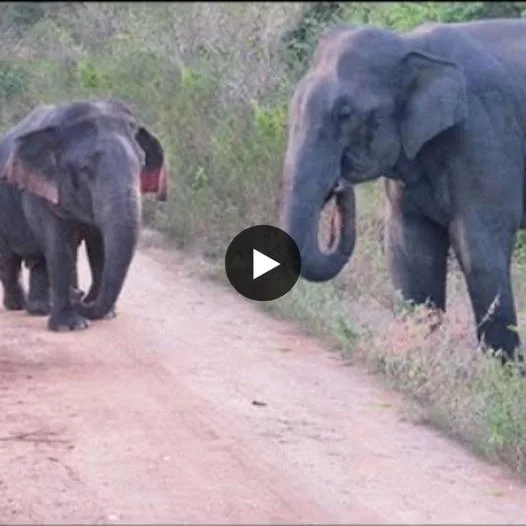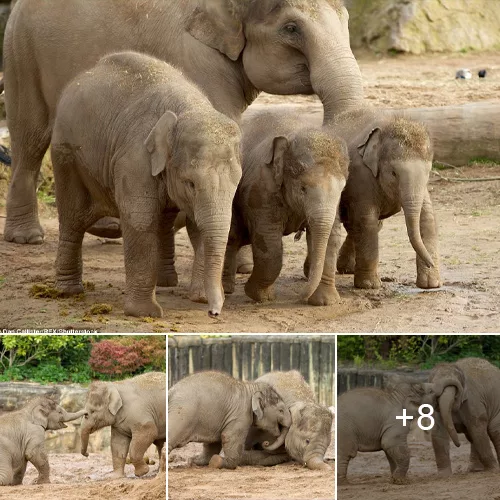In the grand tapestry of the natural world, elephants stand as majestic and awe-inspiring creatures, captivating both researchers and admirers alike. Beneath their majestic appearance lies a depth of emotions that unveil the surprising similarities between these gentle giants and human beings. Here, we explore three compelling reasons why elephants leave an indelible impression as profound as humans.

Complex Social Bonds: One of the most striking aspects of elephants is their intricate social structures. Within their herds, elephants form close-knit family units led by the matriarch, who guides and protects the group with wisdom accumulated over many years. These familial bonds are deeply ingrained, and the emotional connections between members of the herd are profound.
Much like humans, elephants experience a range of emotions such as joy, grief, and empathy. They celebrate the arrival of new members, expressing delight with playful trumpeting and joyful body language. Moreover, elephants have been observed showing empathy and comforting one another during times of distress or loss, displaying an emotional depth that echoes our own experiences of compassion and support within family units.

Expressive Communication: Elephants are remarkable communicators, using a wide range of vocalizations, body postures, and gestures to convey their emotions and intentions. Their trumpeting calls can express excitement, fear, or distress, while low rumbles often signify contentment or reassurance. In addition to verbal communication, elephants use touching and physical contact to bond and convey emotions, just as humans do.
When an elephant’s tusks are threatened or harmed, their reactions exhibit signs of pain and distress, similar to how humans react when they encounter harm to their bodies. These expressive behaviors not only enable elephants to navigate their social interactions effectively but also reveal the depth of their emotions and cognitive abilities.

Experiences of Grief and Mourning: Perhaps one of the most poignant parallels between elephants and humans is their capacity to mourn the loss of their loved ones. When an elephant member of the herd passes away, other elephants have been observed surrounding the deceased, caressing the body with their trunks, and displaying signs of sadness and mourning.
In some instances, elephants have returned to the remains of deceased family members, showing a remarkable memory of their departed companions. These actions indicate a profound understanding of mortality and a sense of loss that resonates with human experiences of grief and bereavement.

The revelation of the emotions experienced by elephants challenges traditional notions of intelligence and consciousness in the animal kingdom. These remarkable beings defy conventional stereotypes and offer a glimpse into the rich emotional lives they lead.

In conclusion, the emotional depth and complexity exhibited by elephants are captivating and reminiscent of human experiences. From their intricate social structures to their expressive communication and their capacity to mourn the loss of their loved ones, elephants leave an indelible impression on observers, evoking empathy and admiration. By understanding and appreciating the emotional lives of these magnificent creatures, we foster a deeper connection to the natural world, reminding us that the line between humans and animals is not as distinct as we once believed. As we continue to unveil the emotions of elephants, let us strive to protect and preserve these majestic beings, ensuring they thrive in a world that recognizes and respects their profound connections and unique qualities.



